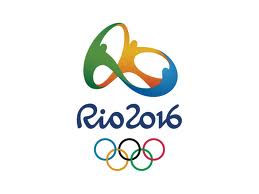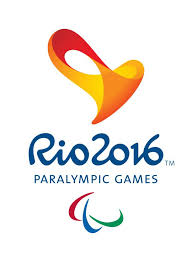 Campus
Campus
ATHLETE ANTI-DOPING - RIO 2016
This page features key information about the rules and processes applicable to human anti-doping at the Rio 2016 Olympic and Paralympic Games. Please also check our "Latest News" page for additional information.
 | OLYMPIC GAMES |
During the period of the Rio 2016 Olympic Games (24 July-21 August 2016) the IOC will have In-Competition and Out-of-Competition Testing authority over all athletes entered in the Games. The IOC's Anti-Doping rules for the Olympic Games Rio 2016 will apply.
Therapeutic Use Exemptions ("TUEs")
Whereabouts information
In order to protect clean athletes and increase the efficiency and effectiveness of the fight against doping for the Olympic Games Rio de Janeiro 2016, the IOC will require all athletes currently in a whereabouts system to include sufficient details to be easily located from the date of the opening of the Olympic Village on 24 July 2016, up to and including 21 August 2016, the date of the Closing Ceremony.
The IOC Medical and Scientific Department will be using the Anti-Doping Administration & Management System (ADAMS). The responsibility for whereabouts will mainly lie with the athlete and the NOC, providing the necessary information on ADAMS or another system recognised by WADA. To the extent needed, the assistance of NOCs will be requested by the IOC to help locate athletes (e.g. through accurate rooming lists for which a template will be available if required and also to ensure athletes realise the importance of full compliance with whereabouts requirements.)
For those athletes not on a whereabouts system, requirements may include the submission of location information through a simplified WADA Major Games Application by the athlete. In specific cases, the FEI or National Anti-Doping Organisations (NADOs) will be asked to include athletes in their formal whereabouts system.
Needle Policy
The Olympic Games are “needle-free” for all participating athletes. Needles may be used only by qualified medical practitioners for clinically justifiable treatment (which must be declared on the designated form to the IOC) or by athletes for self-injection if they hold a relevant TUE (e.g. for insulin). The full policy can be found on the IOC’s official website (here).
Additional Information
Additional information regarding the injuries and illnesses surveillance programme, supplements, Therapeutic Use Exemptions (TUEs), and the scientific and medical equipment policy can found on the IOC’s official website (here).
 | PARALYMPIC GAMES |
During the period of the Rio 2016 Paralympic Games (31 August-18 September 2016) the IPC will have In-Competition and Out-of-Competition Testing authority over all athletes entered in the Games. The IPC's Anti-Doping Code and Rio 2016 Paralympics Doping Control Guide will apply.
Therapeutic use Exemptions ("TUEs")
Between 1 August and 19 September 2016 all athletes entered for the Rio 2016 Paralympic Games must submit any new TUE application to the IPC using the IPC TUE Application Form and in accordance with the IPC Anti-Doping Code.
The TUE decisions of the IPC Medical Committee will be available to the athlete, the athlete’s NPC, the IF, the NADO and to WADA through ADAMS.
TUEs granted by the IPC are only valid for the period of the Games, and do not apply to other international events. They may therefore require a follow up with the FEI if the medication needs to be taken after the Games or if the athlete intends to take part in international events during the period of the Games.
Existing FEI and NADO TUEs holders should submit their TUEs to the IPC for automatic recognition purposes in accordance with the IPC's rules (existing FEI and NADO TUES not eligible for automatic recognition will be reviewed by the IPC Medical Committee).
Whereabouts information
Effective Out-of-Competition testing programmes are essential to the fight against doping in sport and largely depend on accurate and complete athlete whereabouts information. The IPC and Rio 2016 therefore request that all National Paralympic Committees (NPCs):
• Ensure that athletes who are nominated to the IPC/IF/National Registered Testing Pool (RTP) have provided accurate and detailed whereabouts information to the respective anti-doping organisation
• Provide timely information on travel schedules, specific rooming list allocations and training schedules for the Games to enable locating athletes for testing in the lead up to the competition period. In the event that information received from the NPCs is incomplete, or when NPCs refrain from sharing information with the IPC and Rio 2016, the IPC has the right to ask the NPC for more detailed whereabouts information for all or some of their athletes. This information should be provided to the IPC through ADAMS and NPCs have the responsibility of familiarising themselves with the use of Anti-Doping Administration and Management System (ADAMS).
Use of cathethers
We use cookies on this site to enhance your user experience.
By clicking any link on this page you are giving your consent for us to set cookies.